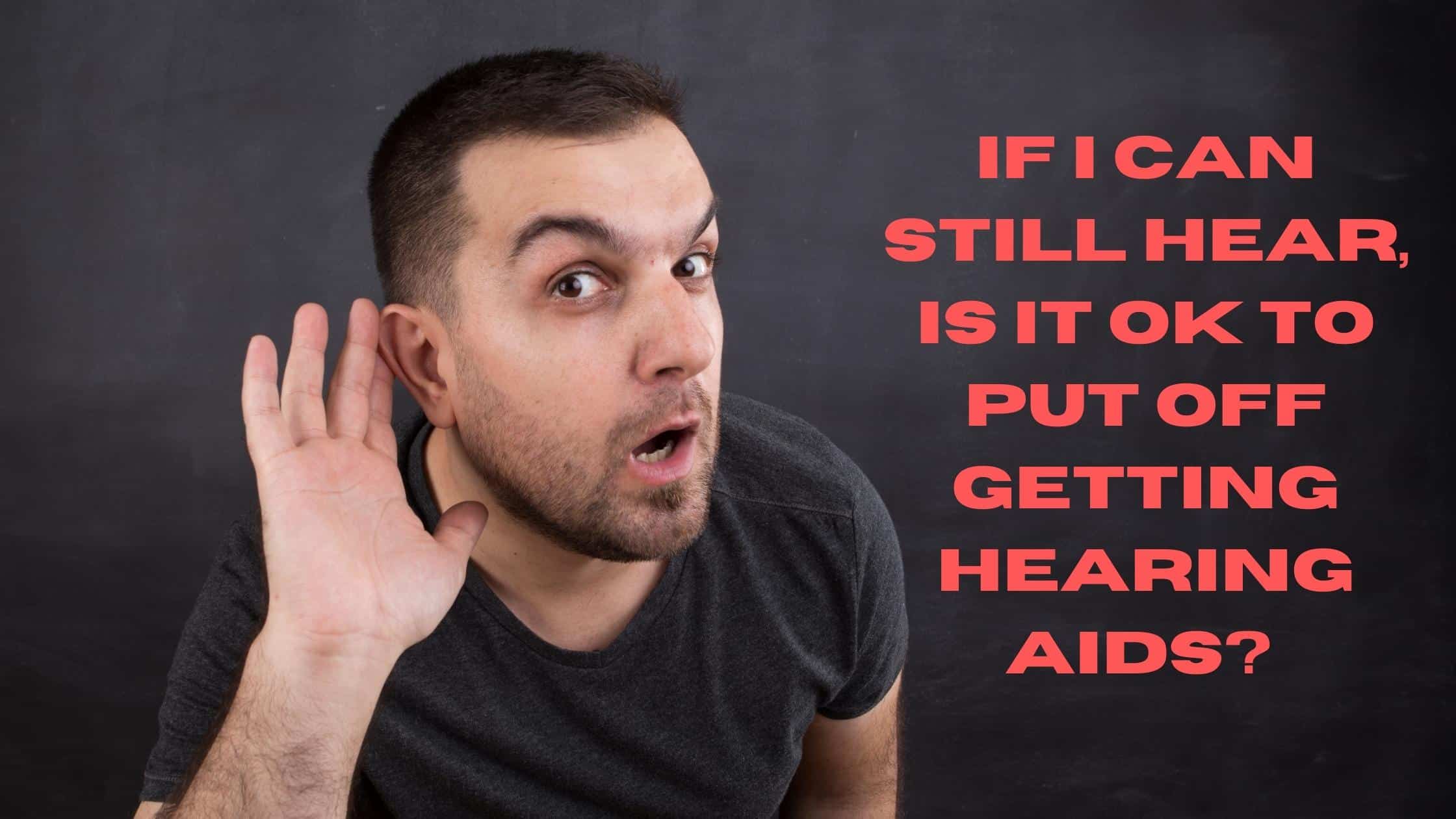
Adults can often recognize the first signs of age-related hearing loss in their 40s or 50s. It starts with having a hard time hearing a family member talk to you from another room. You’ll find yourself turning up the volume on the TV, or asking people to repeat themselves when you’re in a place with background noise. If you can still hear most of the sounds around you, is it ok to put off getting hearing aids?
Should You Wait to Get Hearing Aids?
If you’ve noticed some early signs of hearing loss, you’re probably reluctant to get hearing aids. There’s a stigma around hearing loss and hearing aids, and you’re worried that wearing hearing devices will make you seem old. Many people try to ignore or hide their hearing loss because they’re concerned about what others might say. However, hearing loss is a lot more common than you think, and nearly 50 million Americans of all ages have hearing loss.
What Happens When You Put Off Getting Hearing Aids
Untreated hearing loss is a much bigger deal than you might realize. Hearing loss affects your brain, your overall health, your relationships, and even your job! Putting off getting hearing aids is never a good idea.
Hearing Loss and Your Brain
If you have untreated hearing loss, even mild hearing loss, your brain isn’t being fully stimulated. Hearing happens in both your ears and your brain. Your ears interpret the sound waves and send signals to the brain, and the brain interprets these signals so you can hear. When you have hearing loss, the brain doesn’t receive any information about certain ranges of sound.
The areas of the brain that aren’t stimulated suffer from disuse. They can be damaged or die, or get commandeered for a different job, such as helping your brain interpret information coming in from the other senses. This sounds like a good thing, but when your brain goes through these changes your auditory system suffers, and your hearing loss can become even worse.
Hearing Loss and Your Relationships
Hearing loss can damage your relationships. Even if you can still hear, you have a harder time following conversations. You’re more likely to ask someone to repeat themselves, and more likely to get irritated or frustrated when you can’t hear what’s being said. Communication is at the heart of your relationships with family and friends, so any hearing loss that disrupts communication will have a major impact in your life.
Hearing Loss and Your Job
Mild hearing loss can impact your work. You may have a hard time hearing during meetings, mishear what’s being said, or answer the wrong question. If you connect with coworkers or clients on the phone, you struggle to follow what’s being said. And if you work on a jobsite, your hearing loss could be a safety risk for you and everyone around you.
Treating Hearing Loss Early
We recommend treating hearing loss as soon as you notice any changes in your hearing health. You may still be able to hear many of the sounds around you, but you’re missing some valuable sounds. Think about the last time you heard birds singing, heard softer sounds like the hum of the fridge, or heard someone speaking in another room. You may be missing more sounds than you think.
Treating hearing loss early is the key to minimizing the negative effects of hearing loss. The longer you put off getting hearing aids, more changes can happen in your brain. These changes are irreversible, and you’ll never get those sounds back. Even when you do get hearing aids, those sounds are lost forever. Treating hearing loss sooner prevents damage in the auditory regions of your brain. Hearing aids will help your ears send signals to the brain, and prevent cell damage in the auditory system.
Treating hearing loss as soon as you notice it will help you communicate with loved ones and maintain your close connections. It will also help you do your best at work. We can help you find out exactly what sounds you’re missing with a comprehensive hearing test. After the hearing test, we’ll explore your hearing aid options and help you find the perfect pair you’ll be excited to wear.
